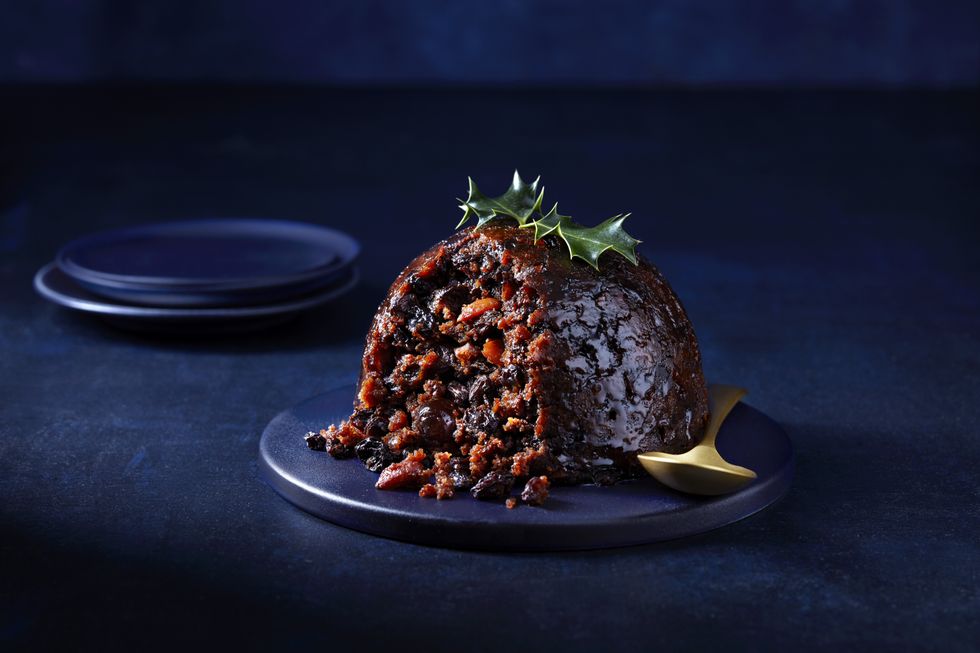Christmas Pudding popularity in decline amongst Britons according to festive survey
WATCH: Britons say Christmas pudding is not an important part of their Christmas
Sixpences have traditionally been stirred into Christmas puddings to bring good fortune
Don't Miss
Most Read
Trending on GB News
Many Brits traditionally serve up Christmas pudding and it has been around since the 14th century.
But it might be losing its place at the table, as 59 per cent of people surveyed by the Royal Mint said Christmas pudding is not an important part of their Christmas Day.
Despite this, more than nine in 10 (92 per cent) of people who celebrate Christmas still place importance on having a Christmas dinner, the YouGov survey found.
At Farmer Copley's in Yorkshire, Christmas Pudding is made and matured months ahead of the big day.
 Christmas Pudding popularity in decline amongst Britons according to festive survey GETTY
Christmas Pudding popularity in decline amongst Britons according to festive survey GETTYChristophe Eytier is the Head Baker at Farmer Copleys. He told GB News: "It's full of fruit and stout and spices. They're the main three ingredients and all the traditional puddings have 13 ingredients."
The Royal Mint found six in 10 people surveyed snub the festive classic. But at Farmer Copleys, there's been no downturn in sales of the sweet.
Heather Copley, Managing Director at Farmer Copleys, said: "It's such an iconic part of Christmas. I think the pudding will always be there.
"Although we're seeing a lot of Generation Z and the millennials, they're always going for something a bit quirky, so a twist that sort of their ownership of the Christmas pudding.
LATEST DEVELOPMENTS:
Some people said they prefer Sticky Toffee Pudding
GB News
"So that's where we're seeing some traditional flavours. But I think most people will still be going for a Christmas pudding, even if they buy it and they don't eat it on Christmas Day, they'll be eating it on Boxing Day."
The people of Pontefract in West Yorkshire told us what dessert they tuck into on Christmas Day.
One woman said: "Well, it's Christmas pudding and brandy sauce."
Another added: "Chocolate gateau and double cream, and then we'll have a Christmas chocolate log."

One woman says she likes a Chocolate log
GB News
One man said: "I'm not really a big fan of Christmas pudding - the traditional one. I get a few mucky looks for having profiteroles around the Christmas dinner table because everyone else has a Christmas pudding."
Another added: "I'm not keen on Christmas pudding. I prefer the trifle and the cheesecake."
Another said: "Proper Christmas pudding, with brandy sauce."
The Christmas pudding research was released to coincide with the Royal Mint’s move to a “sustainable” sixpence made from recovered X-ray silver.
The mint said a limited run of 100 pieces was made available for Christmas 2024 and all sold out within 24 hours. Other sixpences are still available to buy from its website.
The sixpence went out of circulation over 50 years ago and despite no longer being in people’s change, it continues to play a role in traditions.

Another man told GB News he prefers Cheesecake
GB News
Sixpences have traditionally been stirred into Christmas puddings to bring good fortune – however, it is often advised that diners are told of its presence before tucking in.
Rebecca Morgan, director of commemorative coin at the Royal Mint, said: "The Royal Mint is famous for its rich heritage, and we believe that tradition should never be lost – it can be reinvented.
"Our recovered silver sixpence is not only a symbol of good fortune, but also a symbol of a more modern and sustainable festive season."
Over three-quarters (77 per cent) of those surveyed had not heard of Stir-up Sunday, the last Sunday before Advent when people get together to prepare their pudding.
Annie Gray, a food historian and author said: "Stir-up Sunday is a tradition which started in the Victorian era as a tongue-in-cheek play on an Anglican church prayer, which begins: ‘Stir up, we beseech thee, O Lord …’
"The words were used as a reminder to start stirring up the plum pudding – the original Christmas dish – so it had time to mature before Christmas Day."
She added: "The sixpence came from another old tradition, that of hiding tokens in the twelfth cake, the precursor to our modern Christmas cake, eaten on twelfth night.
"Although this was eventually replaced with the Christmas cake eaten today, families kept to the tradition of taking it, in turn, to stir the mix and make a wish. The finder of the sixpence was promised wealth, health and happiness for the coming year."








